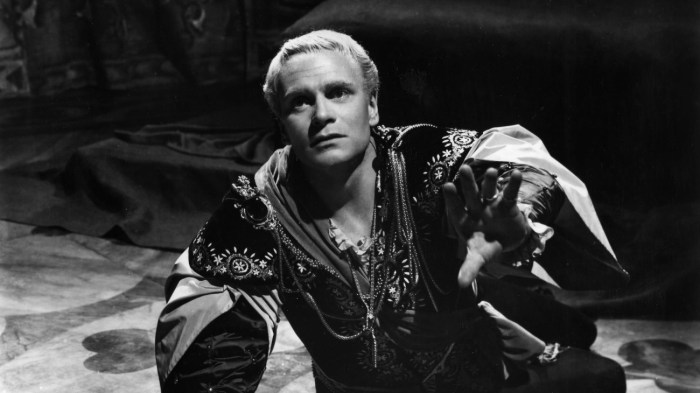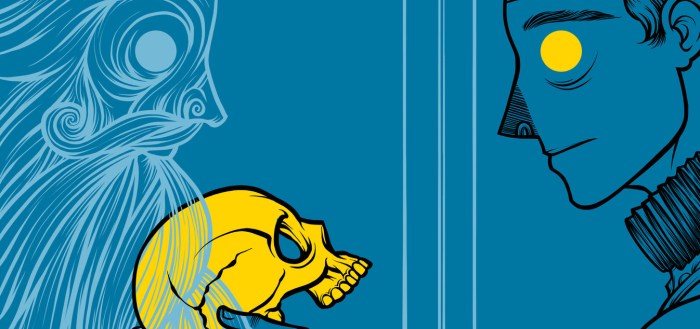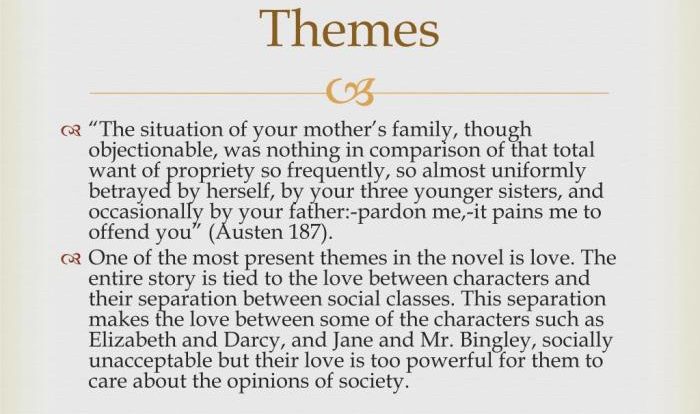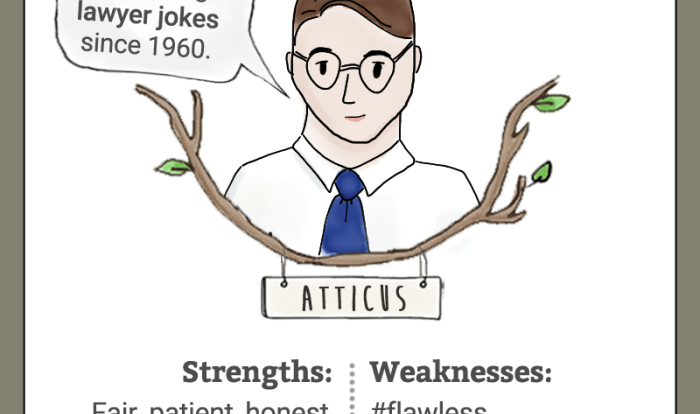Against blank of troubles hamlet – Against Blank of Troubles in Hamlet delves into the myriad challenges that beset Hamlet, shaping his destiny and driving the play’s tragic trajectory. This exploration unveils the significance of the titular phrase, its multifaceted interpretations, and the profound impact of Hamlet’s trials on his character and the play’s resolution.
Against Blank of Troubles in Hamlet

The phrase “Against blank of troubles” appears in Hamlet’s famous “To be or not to be” soliloquy. It refers to the idea of facing adversity and uncertainty with courage and determination. The phrase suggests that Hamlet is contemplating the possibility of taking action against the troubles that surround him, even though he is aware of the potential risks and consequences.
Examples of the Phrase’s Use in the Play
- In Act III, Scene I, Hamlet says, “Against blank of troubles, / To take arms against a sea of troubles, / And by opposing end them.” This suggests that Hamlet is considering taking action against the troubles that surround him, even though he knows it will be difficult and may not succeed.
- In Act V, Scene II, Hamlet says, “Against blank of troubles, / And I, of ladies most deject and wretched, / That suck’d the honey of thy music vows.” This suggests that Hamlet is reflecting on the troubles he has faced, and how they have affected him.
Interpretations of the Phrase
The phrase “Against blank of troubles” has been interpreted in different ways by scholars and critics. Some believe that it refers to Hamlet’s indecisiveness and inability to take action. Others believe that it refers to Hamlet’s courage and determination to face his troubles head-on.
Ultimately, the meaning of the phrase is up to the individual reader to decide.
The Nature of Troubles in Hamlet: Against Blank Of Troubles Hamlet

Hamlet, a tragic masterpiece by William Shakespeare, delves into the profound nature of human troubles. Throughout the play, the protagonist, Hamlet, grapples with a multitude of challenges that shape his character and ultimately lead to his downfall.
Causes and Consequences of Troubles
Hamlet’s troubles stem from various sources, including:
- The untimely death of his father, King Hamlet, which triggers a profound sense of grief and loss.
- The hasty remarriage of his mother, Gertrude, to his uncle, Claudius, who Hamlet suspects of murdering his father.
- The revelation of his father’s murder by the ghost of King Hamlet, which sets Hamlet on a quest for revenge.
These troubles have severe consequences for Hamlet, leading to:
- A deep sense of betrayal and disillusionment.
- A state of profound melancholy and indecisiveness.
- A desire for revenge that consumes him and ultimately leads to his own demise.
Hamlet’s Character and Troubles, Against blank of troubles hamlet
Hamlet’s experiences with troubles significantly shape his character:
- Initially, he is a contemplative and thoughtful prince, but the troubles he faces drive him to become introspective and philosophical.
- He becomes increasingly alienated from the world and the people around him, isolating himself in his grief and despair.
- His indecisiveness and procrastination, often seen as flaws, are manifestations of the profound emotional turmoil he endures.
Through Hamlet’s journey, Shakespeare explores the transformative power of troubles and their ability to both destroy and refine the human spirit.
Hamlet’s Response to Troubles

Hamlet’s response to the troubles that befall him in the play is complex and multifaceted. His initial reaction is one of grief and despair, as he mourns the death of his father and the betrayal of his mother and uncle.
However, as the play progresses, Hamlet’s response to his troubles evolves, and he becomes more active and assertive in his attempts to resolve them.
Hamlet’s Initial Reaction
Hamlet’s initial reaction to his troubles is one of grief and despair. He is deeply affected by the death of his father, and he feels betrayed by his mother and uncle. This is reflected in his famous “To be or not to be” soliloquy, in which he contemplates the meaning of life and death and the possibility of suicide.
The Role of Fate and Free Will in Hamlet’s Troubles

Hamlet’s troubles are multifaceted, and their causes have been the subject of much debate. Some argue that Hamlet’s troubles are primarily the result of fate, while others contend that they are largely the result of his own free will. The play presents a complex and nuanced exploration of the relationship between fate and free will, and it is ultimately up to the individual reader or viewer to decide which interpretation they find most compelling.
Fate
There is no doubt that fate plays a role in Hamlet’s troubles. He is born into a royal family that is cursed by a ghost, and he is destined to avenge his father’s murder. These circumstances are beyond his control, and they shape his life in profound ways.
However, it is important to note that fate does not determine Hamlet’s actions. He has the free will to choose how he will respond to his circumstances, and he makes many choices that contribute to his own downfall.
Free Will
Hamlet’s free will is also a significant factor in his troubles. He is a thoughtful and introspective young man, and he spends much of the play wrestling with moral dilemmas. He is aware of the consequences of his actions, and he makes many choices that ultimately lead to his death.
For example, he chooses to delay avenging his father’s murder, and he chooses to confront Claudius directly, even though he knows that it is dangerous. These choices are not made by fate, but by Hamlet himself.
The Impact of Hamlet’s Troubles on the Play’s Ending

Hamlet’s troubles play a pivotal role in shaping the tragic ending of the play. The relentless barrage of challenges he faces, including the death of his father, the betrayal of his mother, and the machinations of Claudius, gradually consume him and lead him down a path of despair and destruction.Hamlet’s
inability to reconcile his grief and anger over his father’s death with the need for decisive action creates a profound sense of paralysis and inaction. His procrastination and indecisiveness, often attributed to his philosophical nature, ultimately prove fatal. By the time he decides to act, the consequences of his delay have become irreversible, leading to the tragic deaths of Ophelia, Polonius, Rosencrantz, Guildenstern, Gertrude, and ultimately, himself.
The Play’s Ending and Its Interpretations
The play’s ending is open to multiple interpretations, reflecting the complexity of Hamlet’s character and the ambiguity of his fate. Some critics view the ending as a tragic inevitability, the result of Hamlet’s inherent flaws and the relentless forces of destiny.
Others see it as a more ambiguous outcome, suggesting that Hamlet’s downfall was not entirely predetermined and that he could have chosen a different path.
The Significance of the Ending in Relation to Troubles and Fate
The ending of Hamlet underscores the profound impact of troubles on human destiny. Hamlet’s troubles serve as a cautionary tale about the corrosive effects of grief, betrayal, and the struggle against fate. The play suggests that even the most resolute individuals can be overwhelmed by adversity, and that the choices we make in the face of troubles can have far-reaching consequences.
Essential FAQs
What is the significance of the phrase “Against blank of troubles”?
The phrase “Against blank of troubles” signifies Hamlet’s initial state of emptiness and uncertainty, a void that is gradually filled by the weight of his burdens.
How does Hamlet’s response to his troubles evolve?
Initially passive and contemplative, Hamlet’s response transforms into a blend of determination and resignation as he grapples with the magnitude of his trials.
To what extent is Hamlet’s fate predetermined?
The play explores the tension between fate and free will, leaving it ambiguous whether Hamlet’s actions are shaped by external forces or his own choices.


